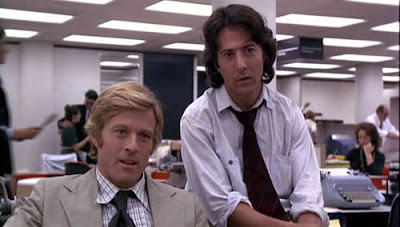 |
| Buaiteoir Buaiteora an Domhain |
McGee was a complex man. One of the greatest Gaelic football managers, while one of its worst players. A sometimes dour, if not downright rude, man who could inspire fierce loyalty. A pundit who was at once blinkered and revolutionary.
But whatever else is said or written of the man, and for all the great and terrible personal loss he is for his family, Eugene McGee will forever be associated with 1982, and the greatest All-Ireland football final the nation has ever seen.
We are lucky that, in an Association whose dedication to preserving its own history is spotty at best, we have a marvellous document of that Offaly team, their spectacular act of giant-killing, and a Kerry Golden Generation that came back from that defeat to become even more lustrous than before. It is Kings of September by Michael Foley, and it is essential reading for anyone who wants to understand Ireland. Essential reading.
McGee is not noted as a Gaelic football tactician, as Jim McGuinness or Mickey Harte are. He liked his football, to use his own phrase, “tough, but manly.” Both Roy Keane and Graeme Souness have been preaching the worth of getting to the damn ball and worrying about tactics later in another code. McGee was of their church.
So was he lucky, or was he good? The results are there. Mick O’Dwyer conquered the world, and McGee conquered Dwyer. McGee was successful with UCD in Sigerson football, Offaly in senior inter-county, and even in International Rules, back when the Australians cared in the ‘eighties. (After an Irish triumph, some Australians believed that the Irish had an advantage because the game was played with a round ball. McGee was asked if he thought the Australians would have won if the games were played with the Australian oval ball. “We’d have won playing with a square ball,” spat McGee).
McGee was a proponent of the black card and the qualifier system, and was wrong on both counts in the opinion of the current writer. He believed that the first step to professionalism in the GAA came with sponsored jerseys, and was correct, again in the opinion of the current writer.
But that’s all these things are; opinions. The man’s record cannot be denied, and neither can the personality, the cut, the gimp of the man. He was proudly rural in a way that didn’t even allow for a rural-urban debate. He was who he was, and he made neither bones nor apologies about it.
It is possible that, reading the eulogies today, some misfortunate sophist with a algorithm where his or her soul ought to be will sit down and watch a tape of that 1982 final. He’ll see a game played on a wet day, with poor fitness levels compared to modern standards, poor skill levels compared to modern standards, and a game in which the best team did not win.
Reader, pity that man. There are those who would look on a rose and see only a bush, or hear a symphony and hear only noise.
The scientific approach to sport has its place, of course, but if it reigns supreme then sport becomes just another job, with carefully measured outputs and inputs and strengths and weaknesses and opportunities and threats.
It’s the sheer human drama of sports that compels, as players battle skills, yes, but also bravery and courage and the huge hand of Fate itself.
Sport is at once serious and trivial. Winning the All-Ireland is the most important thing in the year, after everything else, like births, marriages and deaths. There is a ceiling to how much sport can be parsed.
A wise and thoughtful friend of the blog cried when Kerry lost in 1982. He believed in merit as a child, and that the best team should win. And if that game between Kerry and Offaly were played ten times, Kerry would win it nine times. Of course they would. But the game was played only once, and Kerry didn’t win it. Offaly did, in the most unforgettable moment in Irish sport.
That could not have happened without Eugene McGee. Offaly went one stage further in the Championship every year he was in charge until they won the entire thing, and they did it at that turning point in history when the greatest team of all time were set to collect the uncollectable crown.
If that’s not the very illustration of the sublime, what is? And none of it could have happened without Eugene McGee, now called Home to his Reward. Suaimhneas síoraí dó, agus go raibh príomh-áit aige i nDáil na Laochra Gael.






















